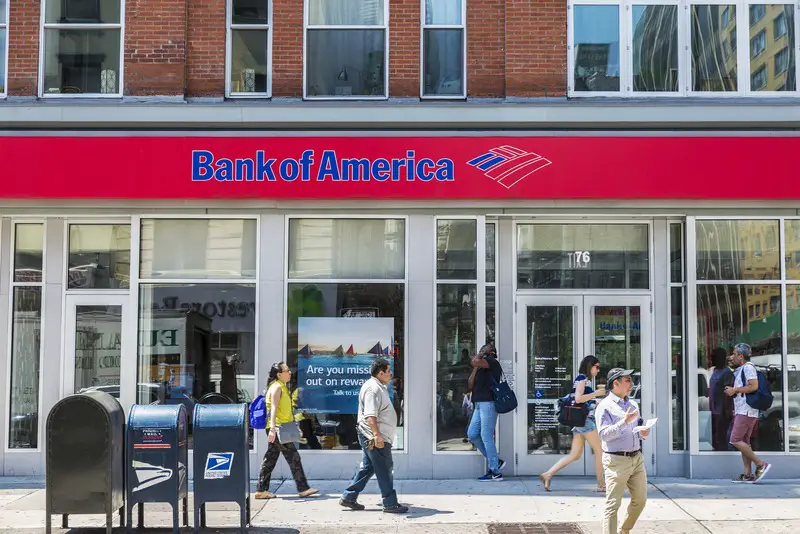The sudden death of Leo Lukenas III, a 35-year-old ex-Green Beret and former Bank of America employee, has brought renewed focus on the demanding work culture prevalent on Wall Street. Reports indicate that Lukenas, who died due to a blood clot on May 2, 2024, was working around 100 hours weekly prior to his death. His untimely demise has struck a chord with numerous bankers who have similar challenging work schedules.
As per a Reuters report, the former Green Beret was actively looking for a job with more manageable hours, underscoring the immense workload he was handling before his death. Even though there is no direct evidence connecting his death to work-related stress, the incident has provoked dialogue about the pressure-cooker environment that many Wall Street employees face.
“There have been incidents where analysts pass out in meetings due to lack of sleep and food, and other times where analysts are hospitalized due to panic attacks — and nobody steps in to check on them,” a Bank of America employee disclosed.
Fueling these concerns, Adnan Deumic, another Bank of America employee, died suddenly on May 16. Deumic, a 25-year-old trader based in London, collapsed during a charity soccer match. The cause of his death is yet to be determined, but cardiac arrest is suspected. Despite his work hours being closer to 60 per week, Deumic’s job was characterized by significant stress due to the high-risk nature of his trades.
An insider familiar with Adnan’s situation noted, “Adnan’s workdays lasted 11 to 12 hours, and they were extremely taxing. He couldn’t even allocate time for a coffee break.”
The strenuous culture prevalent in Wall Street has long been a bone of contention. Investment banking, the sector where Lukenas was employed, is infamous for its grueling workload. Fresh recruits can earn up to $200,000 annually but often work 100-hour weeks.
The intense work culture is a systemic problem fueled by the industry’s hierarchical structure. Managers often disregard junior employees’ time, assigning last-minute tasks that could have been delegated earlier in the week. A managing director highlighted this practice, stating, “VPs do not respect junior people’s time. They will give someone a piece of work at 6 p.m. on a Friday that they could have assigned on Tuesday.”
Many employees find comfort in online communities and social media platforms such as Reddit and WallStreetOasis.com. These forums serve as platforms for workers to share their experiences and vent their frustrations.
An anonymous banker disclosed on social media that Bank of America uses a ‘banker diary,’ where junior bankers record their weekly hours. Although the system aims to prevent overexertion, the banker mentioned that managing directors have asked them to alter their entries to avoid detection.
In response to these allegations, Bank of America stated, “Our policy is clear, and we expect employees to record their hours accurately.”
Despite attempts to introduce policies to reduce work hours, such as the Saturday rule at Goldman Sachs, these measures are often disregarded. The Saturday rule stipulates employees to be off-duty and not working between 9 p.m. Friday and 9 a.m. Sunday. However, sources indicate that these guidelines are regularly overlooked.
The cyclical nature of the industry exacerbates the issue. When profits are high, and there is a shortage of talent, banks offer better hours and perks to attract talent. However, when profits decrease, firms cut costs, decrease staff, and increase workloads for the remaining employees.
Mark Moran, currently managing the investor relations firm Equity Animal, spent four years in investment banking and described the usual workday for junior employees. “You can arrive at the office as late as 10 a.m., and often, no tasks are assigned until the afternoon. However, by 5 or 6 p.m., you’re given work that keeps you there until 2 a.m. to complete.”
This relentless pace can lead to severe health implications. A survey conducted by Overheard on Wall Street revealed that junior bankers average just five hours of sleep per night. One former investment banker recalled her experience: “I was so exhausted that I had to rest my eyes in a bathroom stall every few hours just to function.”
Sleep deprivation coupled with a high-pressure environment can result in physical and mental health issues. Hank Medina, who manages the Instagram account Litquidity, experienced chest pain and heart palpitations while working at Jefferies Bank. “The pain was diagnosed as a result of extremely high stress and insufficient sleep,” Medina explained.
Despite these challenges, there appears to be little change in Wall Street’s culture. As one longtime Wall Streeter stated, “It wouldn’t take that much to be a leader and make real change. It’s such an archaic culture.”
Leo Lukenas is survived by his wife and two young children. His brother, Lew Lukenas, remembered him as “a remarkable individual whose kindness, strength, and spirit touched the lives of everyone he met.”
As discussions about Wall Street’s work culture persist, the deaths of Lukenas and Deumic serve as grim reminders of the human toll of relentless work demands.











